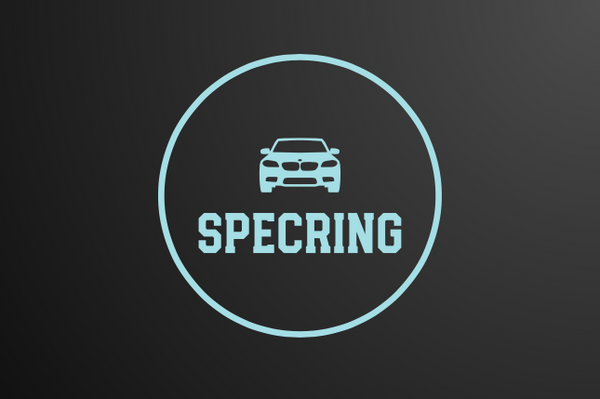When upgrading your BMW or looking for lightweight, durable automotive components, two materials often come to mind: carbon fiber and fiberglass. Both materials offer distinct advantages and disadvantages, making the choice between them crucial depending on your specific needs. Whether you're considering a carbon fiber spoiler, a fiberglass hood, or other aftermarket modifications, understanding the key differences will help you make the best decision.
What is Carbon Fiber?
Carbon fiber is a high-strength, lightweight material composed of thin, tightly woven strands of carbon atoms. These strands are bonded with a polymer resin to create an extremely rigid structure, commonly used in aerospace, motorsports, and high-performance automotive applications.
Pros of Carbon Fiber:
- Lightweight: Carbon fiber is significantly lighter than fiberglass, reducing overall vehicle weight and improving acceleration and handling.
- High Strength: It boasts superior tensile strength, making it resistant to impacts and wear.
- Aesthetic Appeal: Carbon fiber’s signature woven look adds a sleek, high-performance appearance.
- Durability: Carbon fiber resists environmental damage, such as UV exposure and corrosion.
- Increased Performance: The weight savings and rigidity contribute to improved aerodynamics and efficiency.
Cons of Carbon Fiber:
- Higher Cost: Carbon fiber is expensive due to its complex manufacturing process.
- Brittle Nature: It is more prone to cracking under extreme stress compared to fiberglass.
- Difficult Repairs: Unlike fiberglass, repairing cracked carbon fiber components is challenging and often requires complete replacement.
What is Fiberglass?
Fiberglass is a composite material made of woven glass fibers embedded in a resin matrix. It is widely used in automotive and marine industries for creating strong yet flexible components.
Pros of Fiberglass:
- Affordable: Generally much cheaper than carbon fiber, making it a budget-friendly option.
- Easier to Manufacture: The production process is simpler, allowing for more customization.
- Repairability: Unlike carbon fiber, fiberglass can be patched and refinished with relative ease.
- Flexible: Fiberglass can absorb impacts better due to its slight flexibility, reducing the risk of cracks under stress.
Cons of Fiberglass:
- Heavier Than Carbon Fiber: Fiberglass components weigh more, which may impact vehicle performance.
- Less Strength: While durable, it is not as strong as carbon fiber, especially under high stress.
- Prone to Wear: Over time, fiberglass can degrade from UV exposure, moisture, and impact damage.
Head-to-Head Comparison: Carbon Fiber vs. Fiberglass
| Feature | Carbon Fiber | Fiberglass |
|---|---|---|
| Weight | ✅ Lighter | ❌ Heavier |
| Strength | ✅ Stronger | ❌ Weaker |
| Durability | ✅ High | ❌ Moderate |
| Repairability | ❌ Difficult | ✅ Easy |
| Flexibility | ❌ Brittle | ✅ More Flexible |
| Aesthetics | ✅ Premium Look | ❌ Requires Paint |
| Cost | ❌ Expensive | ✅ Budget-Friendly |
Which One Should You Choose?
The right choice between carbon fiber and fiberglass depends on your priorities:
Choose Carbon Fiber If:
✔ You prioritize performance, weight reduction, and aesthetics.
✔ You’re willing to invest in high-quality, long-lasting components.
✔ You want improved aerodynamics and handling for motorsports or high-speed driving.
Choose Fiberglass If:
✔ You need an affordable and durable option for custom body kits or modifications.
✔ You want easier repairability and flexibility for daily-driven vehicles.
✔ Weight reduction is not your primary concern.
Where to Buy High-Quality Carbon Fiber and Fiberglass Parts?
If you’re looking for premium carbon fiber spoilers, diffusers, and body kits, Spec-Ring.com has a carefully curated selection of BMW carbon fiber upgrades that enhance both performance and aesthetics. Check out our latest carbon fiber accessories and elevate your BMW’s look today!
🔗 Shop BMW Carbon Fiber Parts Now
Both carbon fiber and fiberglass have their place in the automotive industry, offering unique advantages depending on performance needs and budget. If you’re after the ultimate lightweight performance with an aggressive look, carbon fiber is the way to go. But if you’re building on a budget and need durable, customizable components, fiberglass is a solid alternative.
Which material do you prefer for your BMW upgrades?

